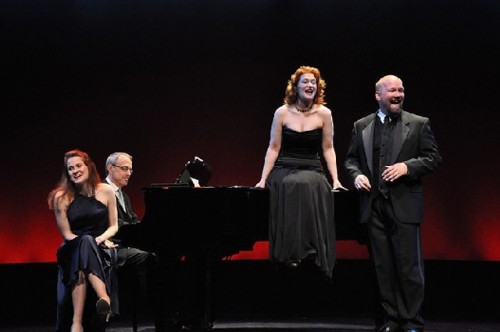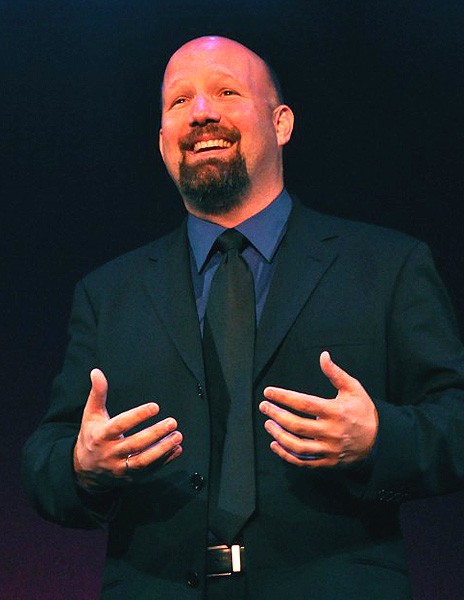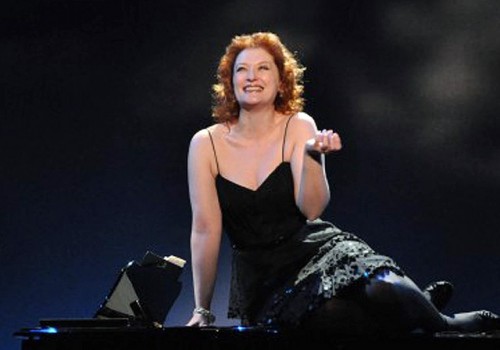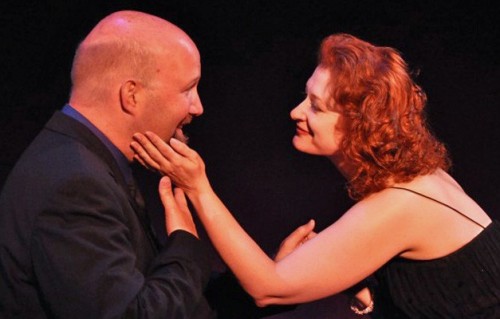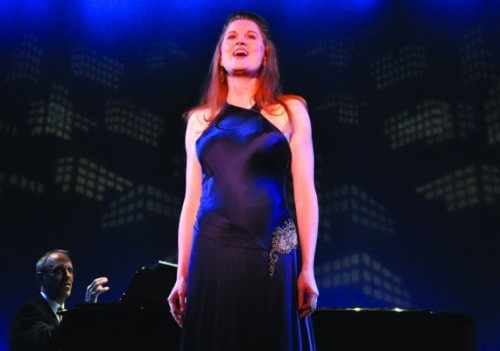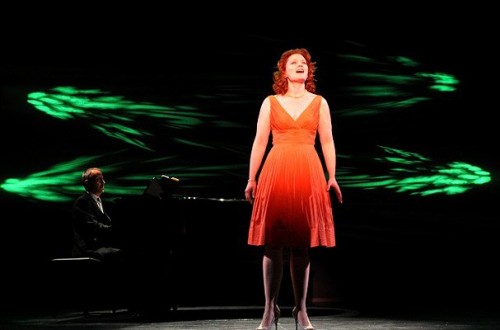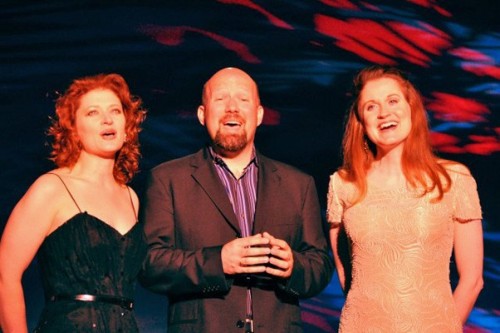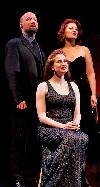Broadway by the Year at Berkshire Theatre Festival
A Joyful Look Back at the Hit Songs of 1930 and 1964
By: Larry Murray - Jun 21, 2009
Broadway by the Year Created/Written/Hosted by Scott Siegel, Directed by Scott Culter, Musical Direction by Ross Peterson, Lighting Designer Matthew E. Adelson, Sound Designer Janie Bullard. The Cast: Scott Culter, Christine Noll and Kerry O'Malley make up the Ensemble, Scott Siegel, Host. 1 Hour, 35 Minutes plus one 15 minute intermission. At Berkshire Theatre Festival Main Stage, June 18-27, 2009. http://www.berkshiretheatre.org/
Here's an absolutely stunning, classy, rip roaring good time for everyone. See this show and you will discover the roots of emo, the classic ballads, and the original wellspring of pop. Any musician worth his salt will find a rich vein of new ideas and fresh interpretations to mine here. More than that, this absolutely ingenious show is also incredibly educational. Learn while you are being entertained? What a concept.Why all the enthusiasm? There are probably a hundred reasons why you should see this show, but the main one is that you will enjoy it thoroughly, and in the process of being entertained you'll be expanding your mind. Broadway by the Year is not just singers belting out the hits of the past, it is far more than that. It is a history lesson, too. All those great songs from the Broadway shows of 1930 and 1964 are really time capsules into the condition of those times, and with the help of creator Scott Siegel, we immerse ourselves in those years. But I am getting ahead of myself.
Some background, then on with the show. Talking with Kate Maguire not too long ago, we had a conversation about the proper role of a nonprofit theatre. As Artistic Director of the Berkshire Theatre Festival doesn't she owe it to the audience to pick plays that entertain us? Audiences not only buy tickets but they provide the donated support, too, so shouldn't their tastes be reflected? She brought me up short. Putting on the happy, fluffy plays is not her true mandate. "Nonprofit theatre is not as much about the audience as it is about education. The IRS sees a nonprofit theatre as an educational institution. That is why we have our exemption." So, the theatre has to teach as well as entertain? "People can interpret that in different ways, but we see it as educating an audience, and BTF is educating young people in the school systems, and we are also educating the next generation of artists."
This explanation provides the rationale behind picking the unusual show that is Broadway by the Year. Begun nine years ago by Scott Siegel his cabaret style show explores the hits and misses from the musicals written in the selected year. As he explained from the podium last night, Berkshire audiences get two for the price of one. Normally, at New York's Town Hall which is the series regular home, each review covers just one year. We got both 1930 and 1964, two very different sets of songs and styles.
In the first half, Siegel delved into 1930 and noted that while the Stock Market had crashed in 1929, and Hoover was still President, there was still a lot of optimism about the future, and the songs of that period reflected that. The Stock Market had yet to reach its bottom - that took several disastrous years - and the worst of unemployment and foreclosures was yet to come. Harold Arlen had written "Get Happy" for the 9:15 Revue, while Cole Porter was celebrating the Big Apple which would soon see unemployed men selling, yes, apples on the street. He wrote a show called The New Yorkers in which there were two upbeat ditties about Manhattan, plus one song, "Love for Sale" which was considered so scandalous it was banned on the radio, the main medium of that era. Also foretelling tougher times was the lament "Ten Cents a Dance" from Simple Simon by Richard Rogers and Lorenz Hart. Rogers was not to work with Oscar Hammerstein until some two decades later.
The selection of simple, sophisticated and sumptuous songs blended the old standards with forgotten gems. The songs were simple, and almost all had wonderful introductions with set the mood with charm. The three members of the ensemble, Kerry O'Malley, Christiane Noll and Scott Coulter delivered their respective songs with great sophistication. All three voices were warm and winning, and sparkled in the upper registers. If there was anything to quibble about is that in two hours there was no bottom, no lower notes to vary the proceedings. Coulter's tenor is magnificent, but how I missed a bass/baritones lower register. Still, what a magnificent sound Coulter delivered, as did luscious Noll and perky O'Malley.
When the singers joined together for duets and trios, the ensemble work was absolutely enchanting, and the resultant sound a rich and sumptuous treat. At the end of the evening the singers turned off the sound enhancement system and sang a cappella and unaccompanied for one etheriel song. You're not going to believe it, but that song was "Hello Dolly"! In their hands, this ditty turned into a masterpiece. Hearing is believing, and I believe, I believe.
The second part of the presentation covered the year 1964, which I remember as the year that Broadway began amplifying everything and lesser voices took major roles. To sell tickets, sometimes spectacle became more important than singing, though not always. What we heard were several selections from Fiddler on the Roof by Jerry Bock and Sheldon Harnick. Funny Girl by Jules Styne and Bob Merrill and of course Hello Dolly by Jerry Herman. We learn about the struggle to cast Funny Girl, who turned it down, how Barbra Streisand became the artist most identified with it.
But perhaps the most surprising story was that of Anyone Can Whistle, Stephen Sondheim's first solo musical which was pretty universally panned by the conventional critics, and quickly shuttered. Several songs have become cabaret standards, and many consider this early work one of Sondheim's best. It's popularity soared in the years following its initial run as people became fond of the Sondheim style. Christiane Noll did a heartfelt "There Won't be Trumpets," and Scott Coulter absolutely sold the title song, "Anyone Can Whistle. "
The musical direction of Ross Patterson on piano was both subtle and sumptuous. His arrangements were constantly inspiring, revealing nuances not normally heard in standard performances of this repertoire. He was never showy, either in the way he attacked his notes, nor in any mannerisms. Indeed he constantly watched the singers for his cues, and clearly was there to support them in their efforts to sell each song. Yet every ear in the house benefited from his expertise and elegance, even if he did not call the least bit of attention to himself. A true pro whom the audience richly rewarded at the end when he was acknowledged.
In the history of music these are little gems. In the context of Broadway, these are wonderful touchstones of the past. And last night, at the Berkshire Theatre Festival, they were the crown jewels. Go, try them on. You'll feel like a King or Queen because you are being entertained by the best of the best.
Quick Link to Berkshire Theatre Festival

